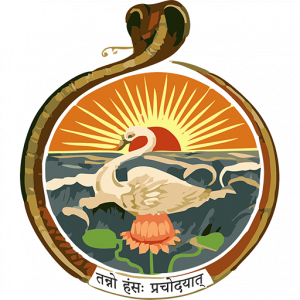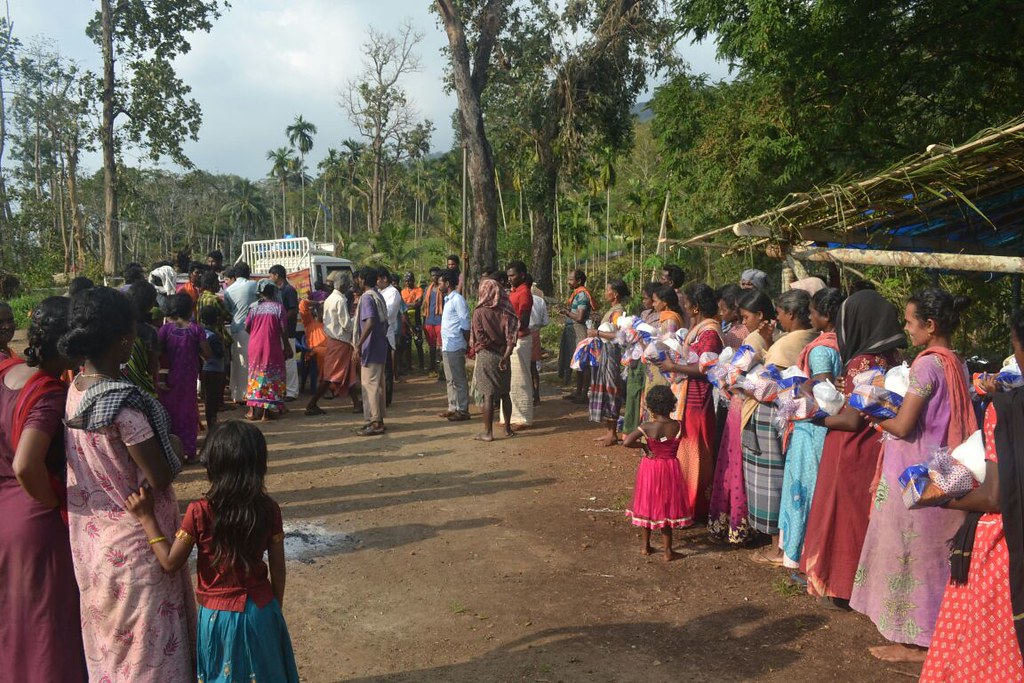OCKHI CYCLONE RELIEF
Kanyakumari : Tamil Nadu
The district of Kanyakumari was severely hit by the cyclone ‘Ockhi’ on the night of 29 November 2017. Heavy rains and strong cyclonic winds caused large scale damage to life and property. Around 10 lakh plantain trees were destroyed and numerous other trees were uprooted, blocking roads and bringing the transport system to a standstill. Thousands of electric poles, lines and transformers were destroyed, and the district got enveloped in darkness.
There are 48 tribal hamlets around Pechiparai dam in the hilly areas of Kanyakumari district. These too were severely affected by the cyclone. Some of the houses have been reduced to rubble by the uprooted trees falling over them. The tribal people who were rendered homeless within a few hours could not escape the furious winds and rains of the cyclone due to total blockade of all the roads and tracks leading to these hamlets. The power supply was disrupted, the mobile phones lost connectivity and the affected people became inaccessible and cut off from the rest of the district. After the winds subsided, late in the evening on 2 December, the affected families were shifted to schools and community halls at three nearby places viz. Puravilai, Villsari Malai, Valiya Malai by service organizations and philanthropists around Kanyakumari district.
This was the scene when Sri Ramakrishna Math, Chennai decided to conduct primary relief service in these areas. The team reached the site on the morning of 3 December and conducted thorough survey of the affected areas. The primary relief was conducted in three phases across the 48 settlements that are spread around the hilly area of 85 sq. kms. While the team traversed the hilly tract many times in the course of the few days, many other NGOs and even the local Government officials found it difficult to reach the people there. The team conducted the survey, issued tokens and distributed relief materials among the affected families in person.
In the first phase, cooked food was served to the starving 600 people accommodated in three camps from the night of 3 December to the night of 5 December, a total of 7 meals. Meanwhile, since other relief organizations started distributing cooked food in these areas, the team concluded that it was redundant to continue the cooked food distribution. After assessing the need it was decided to serve bread loaves along with sugar and tea powder to the people staying in these settlements. There are around 1400 families with a population of nearly 4200 people in total. Food kits, comprising of two loaves of bread, 1 kg sugar and 200 grams tea powder each, were distributed to each of the 1400 families. This completed the second phase of the service.
Power supply had not been restored even after 5 days of the disaster. The team contacted the Headquarters for their approval to serve the people for one more week by distributing food kits for 1250 families till they start earning their daily wages. The distribution of kits commenced on 8 December onwards and was completed on 11 December. Each kit comprised of 10 kg rice, 2 kg dal, 1 kg sugar, 1 kg semolina, 1 kg salt, ½ litre edible oil, 100 gram manjal powder, 100 gram mustard, 100 gram sambar powder, 100 gram coriander powder, 200 gram chilli powder, 200 gram tea powder, 100 gram broken-black gram and 1 matchbox. This completed the third phase of the service.














